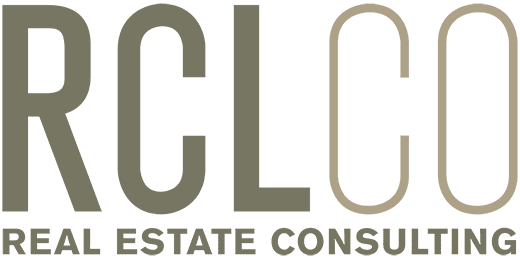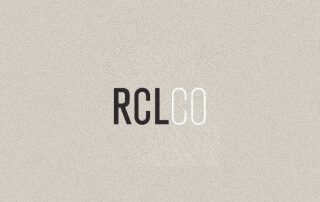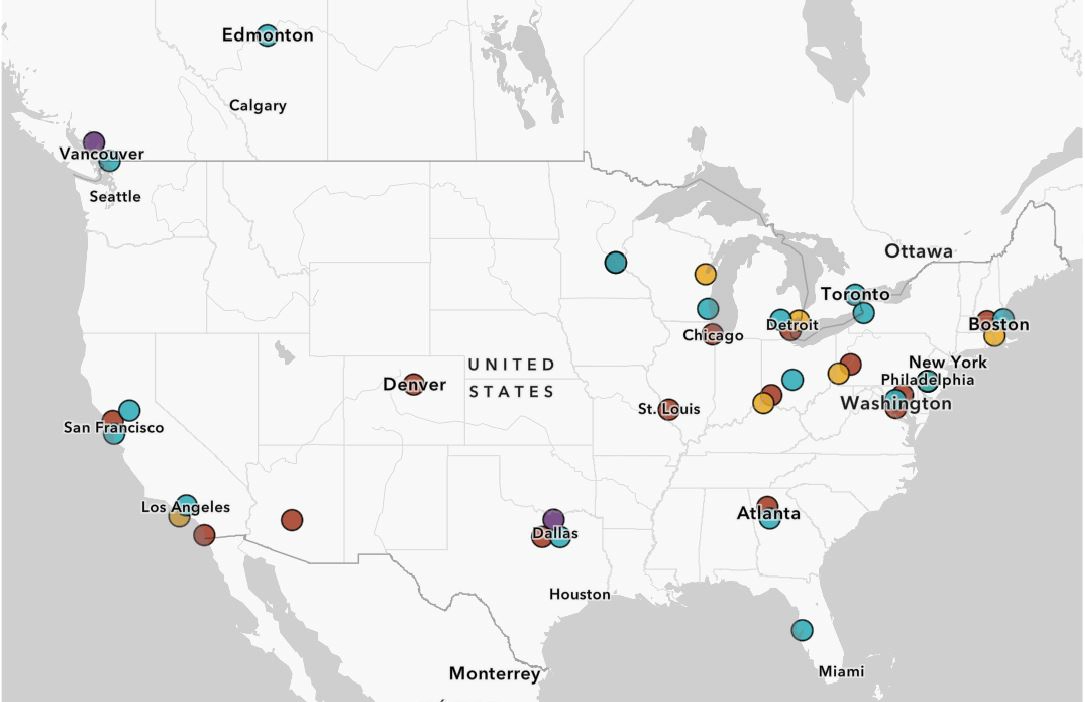Press Release: In New Report RCLCO Mapped Gentrification and Investment across Opportunity Zones
BETHESDA, MD – JANUARY 29, 2019 – RCLCO has released a report identifying the Opportunity Zones that have gentrified the most in recent years, and therefore would most likely become the target of increased investment. Building Opportunity: Mapping Gentrification and Investment across Opportunity Zones, by Eric Willett, RCLCO Vice President, and Brett Dunlavey, RCLCO Analyst, can be accessed online at https://www.rclco.com/advisory-opportunity-zones-gentrification-investment.
Opportunity Zones were added to the tax code by the Tax Cuts and Jobs Act of 2017 in order to spur economic development in previously disinvested areas. The tax benefits to investors within Opportunity Zones, which are detailed in the report, are significant.
RCLCO’s analysis quantifies changes in real estate investment, household income levels, and associated demographic characteristics to build a Gentrification Index that is then applied to every Opportunity Zone in the 25 largest metro areas. The analysis finds that there are a number of quickly gentrifying qualified Opportunity Zones, some with tens of thousands of multifamily units to be delivered over the next several years.
Key National Findings include:
- Highly gentrified Opportunity Zones are concentrated in Rust Belt cities
- Opportunity Zones in new technology areas such as Denver and San Francisco have also experienced high rates of gentrification
- Sun Belt Opportunity Zones are generally less gentrified, comprising 55 of the 100 least gentrified Opportunity Zones
- Gentrification is most pronounced in urban Opportunity Zones
- While the vast majority of selected Opportunity Zones fall within economically challenged neighborhoods, there remain significant outliers (RCLCO found 70 qualified Opportunity Zones in high-end neighborhoods)
“Our Index highlighted trends that we have seen anecdotally from research, strategy, and institutional engagements,” said Eric Willett, RCLCO Vice President, “but we were especially surprised to see that certain highly gentrified Opportunity Zones had been selected, given the dialogue around Opportunity Zones as places to encourage long-term investments in underserved communities.”
The study features an interactive dashboard where readers can explore the Opportunity Zones that have gentrified the most in each of the top 25 metro areas. Here are key findings from four select regions as examples:
- Mid-Atlantic (D.C., Baltimore, Philadelphia, New York):
- On average, Opportunity Zones in the Mid-Atlantic are more gentrified than other regions. These areas have an average Gentrification Index score of 51.5 compared with 48.9 across all Opportunity Zones.
- Reflecting the region’s high incomes, several of the nation’s most affluent Opportunity Zones are located in the Mid-Atlantic. Areas of Brooklyn Heights with median household incomes well over $100,000 are classified as Opportunity Zones, and Washington, D.C. has three Opportunity Zones with median household incomes above $90,000.
- New York’s most gentrified Opportunity Zones are primarily within Brooklyn and the Bronx.
- Many of Washington, D.C.’s most gentrified Opportunity Zones are located outside the urban core.
- California:
- With an average Gentrification Index score of 47.3, 3% lower than the 48.9 average across all Opportunity Zones, California’s Opportunity Zones are slightly more effective at targeting less gentrified communities.
- Oakland has the most gentrified Opportunity Zones in California.
- The Inland Empire has the least gentrified Opportunity Zones in California.
- Many college campuses qualified for Opportunity Zones, despite their attractiveness to student housing developers; USC and UC Berkeley score in the 13thand 15th percentile of all Opportunity Zones nationwide.
- Southeast (Orlando, Tampa, Miami, Charlotte, Atlanta):
- Unlike most other regions, the most gentrified opportunity zones in the Southeast U.S. are concentrated in suburban areas.
- These metros have an average Gentrification Index score of 46, 6% lower than the 48.9 average across all Opportunity Zones.
- RCLCO’s analysis found that Miami’s most gentrified neighborhoods are in communities that have already seen tension between long-time residents and newcomers.
- Tampa and Orlando both rank near the bottom of cities with gentrified Opportunity Zones.
- Texas (Dallas, Houston, San Antonio):
- On average, Opportunity Zones in Texas are less gentrified than the other 25 states comprising the most populous 25 metro areas.
- The region’s most gentrified Opportunity Zones are concentrated near each city’s urban core. Many of the state’s least gentrified Opportunity Zones are located in suburban areas outside of the urban core.
- Houston’s most gentrified Opportunity Zones are immediately adjacent to downtown in East Downtown and South Central Houston. These areas have seen dramatic changes in area demographics, and area income has grown by over 40% in several surrounding Opportunity Zones.
For more detailed information regarding these regions, or for inquiries regarding other regional Opportunity Zones, please contact Eric Willett at ewillett@rclco.com.
About RCLCO
Since 1967, RCLCO has been the “first call” for real estate developers, investors, public institutions and non-real estate companies seeking strategic and tactical advice regarding property investment, planning, and development. RCLCO leverages quantitative analytics platforms and a strategic planning framework to provide end-to-end business planning and implementation solutions at an entity, portfolio, or project level. With the insights and experience gained over 50 years and thousands of projects – touching over $5B of real estate activity each year – RCLCO brings success to all product types across the United States and around the world. RCLCO is headquartered in Bethesda, MD, and has offices in Los Angeles, CA, Orlando, FL, and Austin, TX.
Media Contact:
Diana M. Black
Marketing Manager
(310) 670-4288
dblack@rclco.com
Related Articles
Speak to One of Our Real Estate Advisors Today
We take a strategic, data-driven approach to solving your real estate problems.
Contact Us


